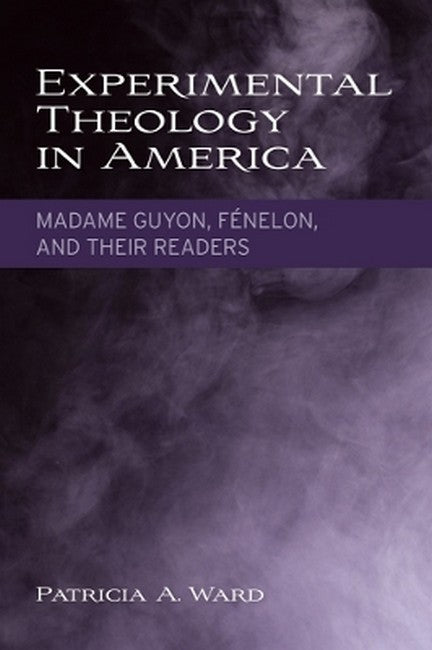Patricia A. Ward is Professor Emerita of French and Comparative Literature at Vanderbilt University where she served as Director of the W.T. Bandy Center for Baudelaire and Modern French Studies and Chair of the Department of French and Italian. She lives in Nashville, Tennessee.
Request Academic Copy
Please copy the ISBN for submitting review copy form
Description
Preface Acknowledgments Chapter One American Popular Piety and Continental Spirituality: The Ecumenical Contexts of Nineteenth-Century Holiness Camp Meetings Chapter Two The Reputation of Madame Guyon: Personalities, Politics, and Religious Controversy under Louis XIV Chapter Three The D? (R)nouement of the Quietist Drama and Early Intermediaries to Protestant Circles Chapter Four Madame Guyon and the Pietist Mind-Set: The Transmission of Quietism to German-Speaking Pennsylvania Chapter Five The Praxis of Piety: Quaker and Methodist Mediation of the Works of F? (R)nelon and Madame Guyon Chapter Six Persons of Eminent Piety and Writers of Spiritual Wisdom: F? (R)nelon, Madame Guyon, and Their American Readership, 1800-1840 Chapter Seven From Experimental Religion to Experimental Holiness: Contexts of Thomas Upham's Reinterpretation of Madame Guyon, 1840-1860 Chapter Eight The Turn to Devotional Literature: Readers of F? (R)nelon, From Boardman, Stowe, and Bushnell to Twentieth-Century Evangelicals Chapter Nine The Legacy of Madame Guyon from 1850 to 2000: From Romantic Sentimentalism to the Charismatic Movement Epilogue Notes Bibliography
An immensely successful portrait of the sincerity and vigor of American faith. --Thomas Pavel, Gordon J. Laird Distinguished Service Professor, University of Chicago Patricia A. Ward's Experimental Theology in America is a detailed and remarkably erudite study on the impact that Jeanne Marie Bouvier de la Motte Guyon and Francois de Fenelon, the Archbishop of Gambray, had on Protestant devotional literature from the eighteenth century onward. Ward provides a comprehensive explanation as to why these two Catholic mystics have proven to be such an enduring force within Protestant, Evangelical, and charismatic circles in the United States, particularly among Methodists and Quakers. -- "Christianity and Literature" Patricia Ward's book presents the definitive history of the Quietist legacy in America. It is well written and carefully researched, and it helps to explain the persistent experimental appeal of American revivalism. -- "The Journal of Religion" ... this book is ecumenical history at its best. -- "Books and Culture" Ward... demonstrates the strong influence of seventeenth-century French Catholic Quietism on Protestant American piety.... This book will prove compelling not only to readers interested in Quietism but also to those interested in religious history, devotional literature and practice, or women's writing. --Leigh Pittenger "Rhodes College, Religious Studies Review" Ward's careful handling of primary sources and her detailed reconstruction of Quietism's legacy within American Protestantism guarantee her book an authoritative place at the table in future discussions of American popular piety. --Chad P. Stutz, University of Mobile "Religion and the Arts"

